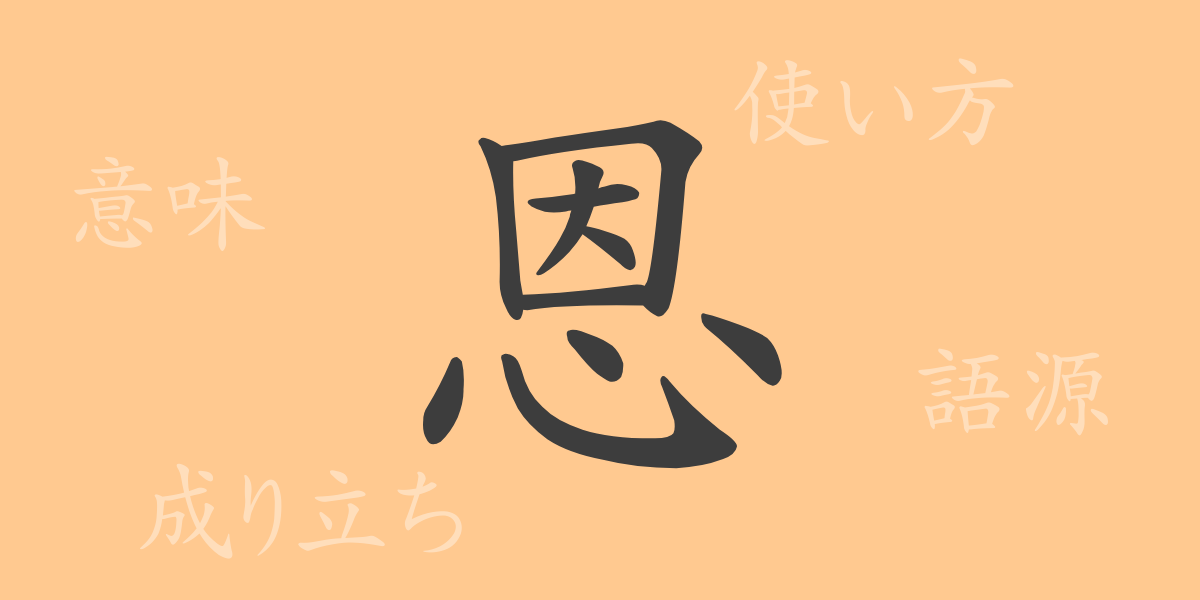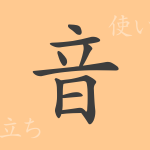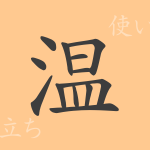“
In Japanese culture, there is a deeply rooted spirituality that values the bonds between people. One of the core concepts that embodies this is “”恩”” (On). In this article, we will delve into the origin of 恩 (On), its meaning, reading, and even the idioms and phrases related to 恩 (On). What exactly is 恩 (On), and what value does it hold for Japanese people? Let’s touch upon its profound world.
The Origin (Etymology) of 恩 (On)
The kanji “”恩”” (On) is a character that originated from ancient China, and its etymology symbolizes “”a feeling of heartfelt gratitude.”” The original character consists of the radical “”心”” (Kokoro), representing the heart, combined with “”因”” (In), indicating sound. It is said to convey the meaning of sincerely appreciating and never forgetting the good deeds received from others. This spirit of gratitude and reciprocation has been cherished in Japan since ancient times.
The Meaning and Usage of 恩 (On)
“”恩”” (On) is a word that expresses the kindness or benefits received from others, as well as the feeling of gratitude for them. In Japan, expressions such as “”恩を感じる”” (On- wo -kan-jiru, to feel gratitude) and “”恩を返す”” (On -wo -kae-su, to return a favor) are used, and it is an important concept that represents gratitude and obligation in relationships between people. In social life, not forgetting the kindness received and reciprocating it is considered a basic ethic for maintaining smooth human relationships.
Reading, Stroke Count, and Radical of 恩 (On)
The kanji “”恩”” (On) is a common character in Japanese and is frequently used in daily life.
- Reading: The on’yomi reading is “”おん”” (On), and there is no specific kun’yomi reading.
- Stroke Count: A total of 10 strokes.
- Radical: The radical is 心部 (Kokorohen, heart radical).
Idioms, Phrases, and Proverbs Using 恩 (On) and Their Meanings
Idioms and phrases containing “”恩”” (On) strongly reflect its deep meaning in social life and human relationships. For example, “”恩を売る”” (On- wo- u-ru) means to show kindness with the intention of using it later for one’s own benefit, “”恩を仇で返す”” (On- wo- ada -de- kae-su) means to forget a favor and instead cause harm, and “”恩知らず”” (Onshi-razu) means to forget the kindness received. These expressions teach the importance of 恩 (On) and can be considered Japanese lessons that explain the way of being human.
Summary of 恩 (On)
Through this article, we have been able to understand the historical background and deep meaning of the kanji “”恩”” (On). In the lives of Japanese people, “”恩”” (On) holds a value beyond a mere character and serves as a foundation for building human relationships. When you receive a favor, never forget it and return it someday—this cycle is what enriches society and makes us human. In this way, “”恩”” (On) continues to be an extremely important concept in Japanese culture.
“

























